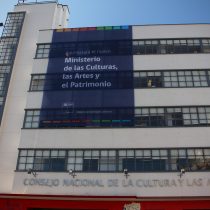
The territory is a vital element for the Creative Economy. Without territory, we are left only with the individual effort of an entrepreneur and his attempt to survive, dreaming of reaching an audience or consumer audience. If that entrepreneur succeeds from time to time, it will be only because of his personal perseverance, even in cases where he has obtained a public subsidy to achieve it. Does this kind of success work for the Creative Economy? In principle, I think it’s welcome; it only increases inequality, however, it produces works that gain international recognition.
By the way, recognizing talent is important, but not the only thing. It has been said time and time again that the Creative Economy seeks, as a first and last objective, to generate an improvement in people’s quality of life, as well as an increase in social inclusion. It is in the territory where the sociocultural transformation of this economy occurs, and where it is given real sustainability.
Undoubtedly, to meet these goals, creative entrepreneurs need to improve competitiveness and innovate. Without territory, without identity, without culture or creativity it is impossible to generate competitiveness, it is impossible to generate economic and sociocultural impact, let alone move towards sustainable development.
Promoting the Creative Economy and its industry has multiple benefits, not only for the artists, entrepreneurs and professional workers involved, but also for the territory, its agents, audiences and inhabitants, in whom it can catalyze positive transformative effects. The problem is how to get public policies on Culture, Territory and Creative Economics to gather evidence of their impact.
In underdeveloped or developing countries such as Chile, these policies should incorporate into their design the necessary scientific-applied approach with a view to obtaining demonstrateable results. To this end, implementing cultural development plans in cities and territories is urgent. This would lead to greater social awareness in this regard and to generate formal learning processes, either by maintaining the measures of the programme, in case they get results, or by correcting what does not work and eliminating what is useless or what has already been resolved.
In young democracies like ours, the absence of an approach like the one described leads, in a natural and spontaneous way, to proliferating proposals based on mere intuition, the “good idea”, the simple suggestion of those close to decision-making. Outside of the uns of the professional of these practices, they lead to a total loss of sight of the territorial and cultural problem, the only result being that the programmes cease to have continuity as soon as there is a change of government, thus harming the direct and indirect beneficiaries of those actions.
This also leads to the redirection of the public budget which – always scarce – does not steadyly justify or demonstrate the reasons for its allocation and its vital importance for the problem to be solved. Proposing early participation in the design of regional cultural development plans would help to establish a clear framework and defined objectives, highlighting the importance of continuity for the transformation of cities and territories.
In the midst of a campaign by constituents, mayors, councillors and regional governors, it would be interesting to know the candidates’ proposals in these matters. How can we move forward in overcoming poverty and identified problems, how to reactivate economic and cultural activity, as Cali, Medellin and Bogota, Mexico City or Buenos Aires try? These are some of the questions that each region of Chile should from now on start answering.
In the year of the Creative Economy for Sustainable Development, the design of better public policies is a vital urgency for the country.
The content poured into this opinion column is the sole responsibility of its author, and does not necessarily reflect the line editorial or stance of El Mostrador.
"El reclamo puede ser genuino, pero construido sobre una mentira", apuntó el presidente Javier Milei…
El gobernador de la provincia de Buenos Aires, Axel Kicillof, encabezó un acto en Ensenada…
El diputado nacional de La Libertad Avanza, José Luis Espert, expresó su confianza en la…
Tras la masiva reaparición de Cristina Fernández de Kirchner, el presidente Javier Milei apuntó contra…
El principal propósito de la nueva comisión es evaluar los recursos humanos en el Senado,…
En una medida que busca redefinir las condiciones de los seguros de automóviles en Argentina,…
Esta web usa cookies.